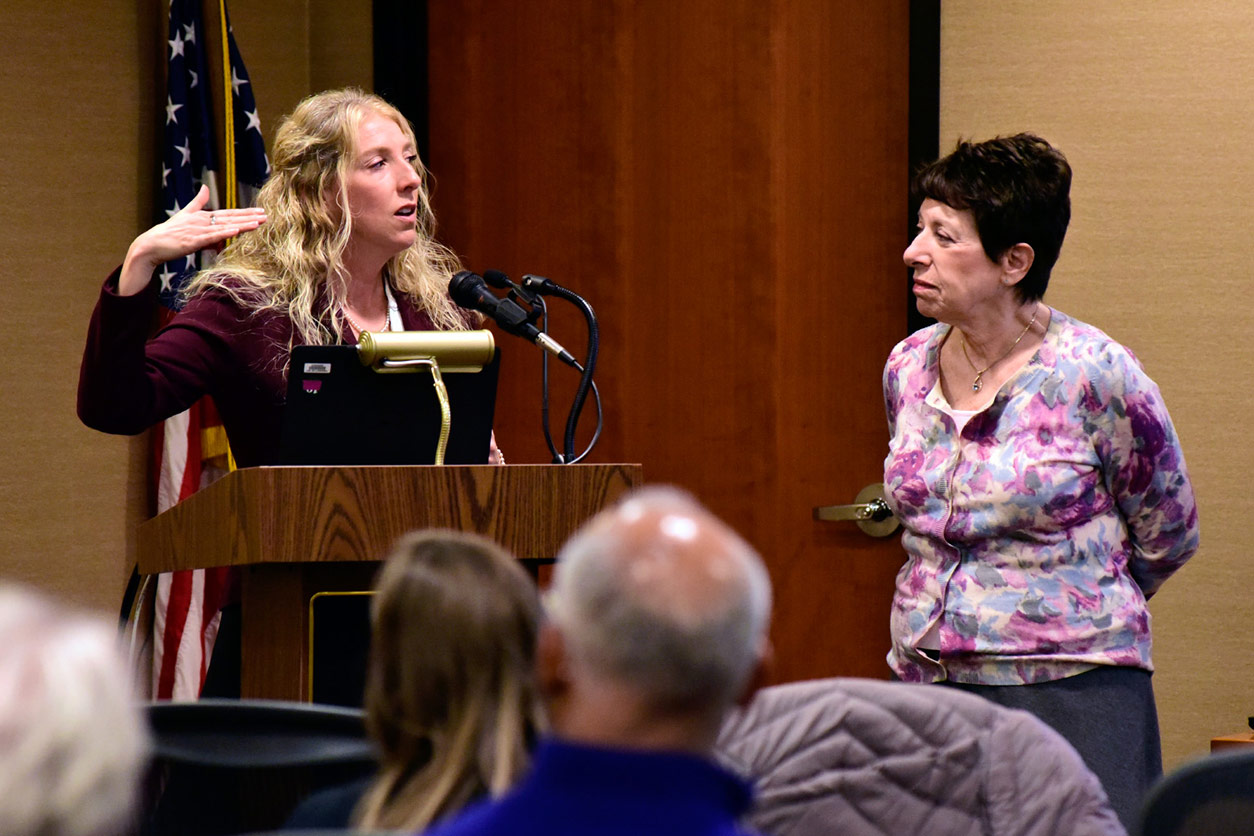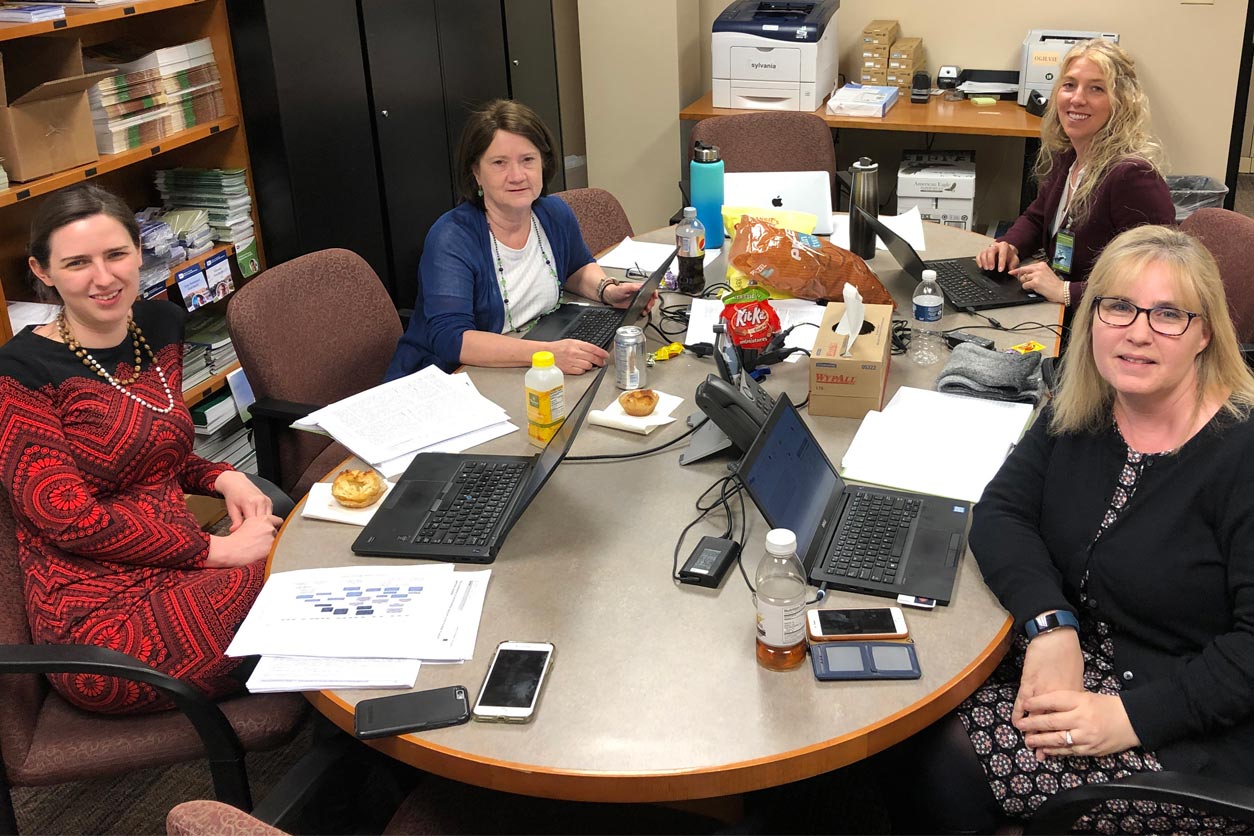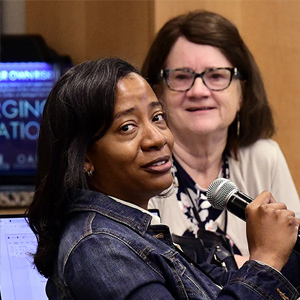NIEHS kicked off its month-long celebration of World Autism Awareness month with a seminar April 2 by NIEHS-funded researcher Rebecca Schmidt, Ph.D., from the University of California, Davis, as well as a social media event and webinar.
Autism spectrum disorder, or ASD, is a broad range of conditions that affects communication and behavior. According to the most recent estimates from the U.S. Centers for Disease Control and Prevention (CDC), ASD affects one in 59 children in the U.S.
 Based on 2014 data, the CDC estimated that one in 59 children in the U.S. had ASD. Of that number, for every one girl, four boys were identified with ASD.
Based on 2014 data, the CDC estimated that one in 59 children in the U.S. had ASD. Of that number, for every one girl, four boys were identified with ASD.NIEHS has steadily increased research funding for ASD over the last decade, in response to reports that the risk of autism may be influenced by environmental factors such as air pollution, pesticide exposure, or levels of certain nutrients in the mother’s blood before and during pregnancy.
A link emerges
“We know from previous studies that autism has a neurobiological basis,” Schmidt said during her talk for the Keystone Science Seminar Series. “Folic acid, the synthetic form of folate, is critical for development of the brain and nervous system,” she said.
According to Schmidt, earlier studies showed that taking folic acid early in pregnancy and even before helps reduce neural tube defects and risk for behavior or social problems. That led her to wonder about the relationship between folic acid and autism.
In addition, certain gene variants are present in both mothers and their children with ASD, which suggests a genetic link. Schmidt’s work showed that mothers of children with ASD reported taking fewer prenatal vitamins in the first trimester and in the months before they got pregnant. Could gene-environment interaction be involved?
“We wanted to look at pathways that were involved with folate metabolism,” she said. Her team did this by looking at both prenatal vitamin use and data on gene variants.
“Independent of which genetic variant the mother had, if she didn’t take prenatal vitamins, the baby was at much higher risk for developing ASD,” Schmidt reported. The team is now working to find out the mechanism behind the association between prenatal vitamins and ASD.
 Schmidt, left, answered questions from the audience on her work regarding folic acid intake during pregnancy. NIEHS and National Toxicology Program Director Linda Birnbaum, Ph.D., right, hosted the seminar. (Photo courtesy of Steve McCaw)
Schmidt, left, answered questions from the audience on her work regarding folic acid intake during pregnancy. NIEHS and National Toxicology Program Director Linda Birnbaum, Ph.D., right, hosted the seminar. (Photo courtesy of Steve McCaw)Folate is involved in DNA synthesis and repair, which is especially important in a developing fetus, Schmidt explained. Folate is also known to be involved in DNA methylation, a process that can change when genes are active by adding chemical tags, called methyl groups, to DNA. She cited earlier research that showed that the environment can influence DNA methylation.
“This [work] suggests that there may be a way to counter those effects with methyl donors, such as from folic acid,” she said.
Reddit Ask Me Anything — a big success
Shortly after the seminar, Schmidt joined NIEHS scientists for a Reddit Ask Me Anything (AMA) on environmental risk factors of ASD. Cindy Lawler, Ph.D., head of the NIEHS Genes, Environment, and Health Branch, and branch members Astrid Haugen and Amanda Garton hosted the event.
 From left, Garton, Lawler, Schmidt, and Haugen joined forces to answer questions from the Reddit community during the Reddit AMA. (Photo courtesy of Sheena Scruggs)
From left, Garton, Lawler, Schmidt, and Haugen joined forces to answer questions from the Reddit community during the Reddit AMA. (Photo courtesy of Sheena Scruggs)Using Reddit — a news website and discussion forum — NIEHS researchers can reach a potential audience of over 17 million people around the world. Questions are submitted by the Reddit community, and scientists take time to explain their science in an engaging way.
The team answered nearly 30 questions related to such topics as the microbiome’s role in autism, endocrine disruptors, and how the father’s health might contribute to risk of ASD. Check out a few of the questions and answers in the sidebar, or read through them all in the Reddit AMA.
Webinar tackles risk communication challenges
On April 24, the Partnerships for Environmental Public Health (PEPH) addressed communication challenges in a webinar with Craig Newschaffer, Ph.D., from Penn State University and Anny Hui Xiang, Ph.D., from Kaiser Permanente.
The speakers discussed scientific understanding of autism and challenges scientists face when communicating new findings. Specific topics included maternal risk factors for autism, such as diabetes and other conditions relevant to women’s health.
For more World Autism Day events, check out NIEHS Autism Environmental Health Topics.
Citation: Schmidt RJ, Hansen RL, Hartiala J, Allayee H, Schmidt LC, Tancredi DJ, Tassone F, Hertz-Picciotto I. 2011. Prenatal vitamins, one-carbon metabolism gene variants, and risk for autism. Epidemiology 22(4):476–485.
(Sheena Scruggs, Ph.D., is the Digital Outreach Coordinator in the NIEHS Office of Communications and Public Liaison.)









